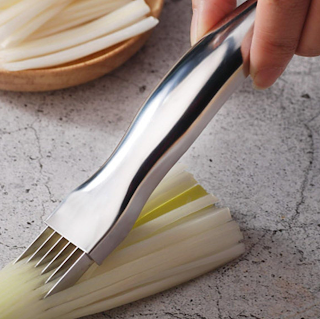Here in the South, cornbread is almost always sold in the bakery department at one's local grocery store. And you can count on biscuits to be found on many menus and in the kitchens of Southern born-and-raised folk. Everyone has a secret biscuit recipe or technique passed down from their "meemaw."
I am a bread snob and prefer artisan-created breads. But they are getting a little too pricey. They are now selling "half loaves," but those are even worse of a deal.
So I've been making cornbread. In the Colonies, it was called "pone" or "corn pone." A wedge is considered a "pone." It's great in the morning with my coffee. A bit of good butter and jam. Perfect. For lunch, a few slices of cold cuts or since it is still tomato season, a few slices of fresh tomatoes, mayo, salt, pepper and a flutter of basil leaves. Now that's good eating. The cornbread absorbs juice of the tomato and mayo. Yum! And, of course, it's always good with whatever you are having for dinner, especially stews and soups.
The other day while making up a batch, I just happened to have a wedge of blue cheese, half gone, sitting on the counter. Out of curiosity, I crumbled some into the batter and, instead of using sugar, squirted in some honey that needed to be used up.
Man, it was GOOD!
In the past, I have added sour cream and canned cream corn.
Because fresh corn is so abundant right now (really, throughout the year), I decided to try fresh corn kernels and they did not disappoint. Frozen and canned, I think, can bake up a bit chewy. Fresh remained plumper, sweeter and crisper.
 |
| I use this handy tool for corn. Yes, you need one! |
I finely diced a green onion and threw that in.
 |
| I love this gadget! You will, too! |
Since it was a small loaf, I used the rest of the corn and another scallion to make a saute to serve with dinner.
Die-hard Southerners insist on white corn meal. And no sugar. To appease both sides, I simply mix white and yellow together which I keep in 1/2 gallon jar. Problem solved.
I do like sugar, though. Many who insist on no sugar in cornbread end up slathering it with sugar in the form of honey, molasses, or some kind of syrup. So, really, what's the difference?
It's traditional to bake cornbread in a cast iron skillet that is HOT with melted grease. And lots of it. Never a square pan. It is cut into wedges and served warm.
Honey is not cheap. So, here I have used white sugar.
I always have bacon fat on hand because I buy it in containers. Many grocery stores now stock it: "BACON UP." And lard. Lard is pork fat. Both are healthier than butter and certainly better for you than any "seed oil." Bacon up has a slight smoky, bacon flavor and is perfect for frying eggs. It's also great for greasing the sides of casserole dishes. Add a bit to boiled beans to perk up the flavor. Ironically, it's cheaper at the grocery store than to order on Amazon. It has a long shelf life. I wouldn't be without it.
Also, buy a 'wedge' of cheese. Crumbles are just leftovers ... You don't need a gourmet brand here. My preferred brand is "Litehouse Simply Artisan Blue Cheese Center Cut," but it's getting more and more difficult to find. That is some good blue cheese for the money!
- .5 or one-half cup yellow cornmeal
- .5 or one-half cup all-purpose flour, preferably unbleached
- 1/4 - 1/3 cup white sugar
- 2 teaspoons baking powder
- 2-3 tablespoons melted bacon fat plus more for the pan
- 1 egg plus one egg yolk
- 1/2 cup buttermilk maybe 1-2 tablespoons more
- 1/4 cup crumbled blue cheese from a whole wedge
- 1 green onion, white and green parts
- 1/4 to 1/2 cup fresh corn kernels
- a dasher two of garlic powder
- a dash or two of ground black pepper









